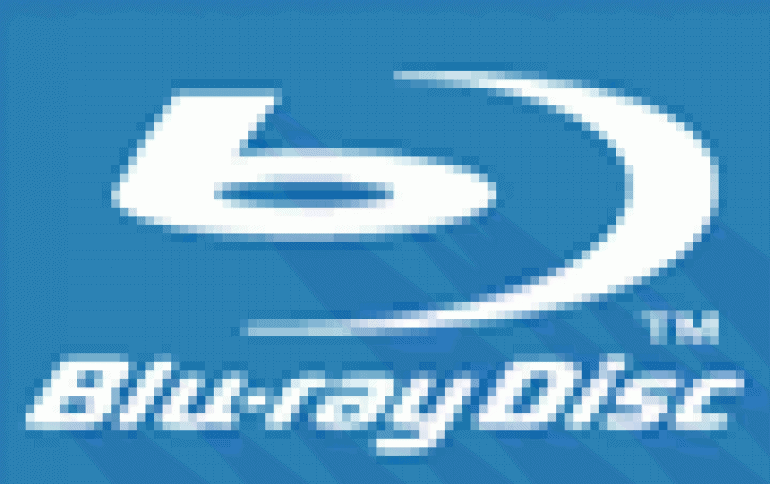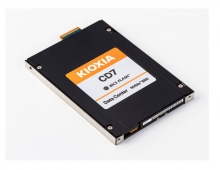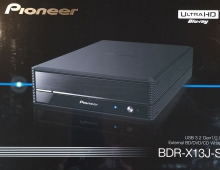
HP May Support Both HD DVD, Blu-Ray Formats
The Blu-ray Disc group on Wednesday said it would not adopt a proposal from Hewlett-Packard by the launch of the technology early next year, leading the PC maker to say it may back a rival in the looming multibillion dollar war.
That would leave HP, the No. 2 PC maker, splitting support between the two leading technologies HD DVD and Blu-Ray.
HP has been a supporter of the Sony-led Blu-ray, and in October had said if two technologies it considered important to PC users were not included in Blu-ray's specifications, it would consider backing rival standard HD-DVD, championed by Toshiba.
Billions of dollars are at stake as the electronics, computer, movie and television industries gear up for a technology change expected to send consumers back to the stores for equipment and discs that will play high-definition pictures and stores many times the data of current discs.
HP has championed two technologies known as iHD and mandatory managed copy. Mandatory managed copy lets users legally copy DVDs and store the digital file on a home network, while iHD provides for new interactive features and is slated to be implemented in Microsoft's new Windows Vista operating system.
On Wednesday Blu-ray said it will incorporate mandatory managed copy but would launch it in spring 2006 with interactive features built on Sun Microsystems's Java software.
"Mandatory managed copy will be part of Blu-ray format, but while HP's request (for interactivity) is being considered, at this point in time, the Blu-ray group is still proceeding down the path of Java," Blu-ray spokesman Andy Parsons told Reuters in an interview.
"We are taking their request seriously, but are not willing to delay the launch and are going to go forward with the Java-type option," he said.
"I'm not saying we would not implement what they've requested, but it's not going to stop the format at this time," he said. "HP is still a valued member of the Blu-ray Disc Association and I expect to see them supporting Blu-ray in upcoming promotional events."
Microsoft and Intel both support HD-DVD. HP has said its move reflected its desire to ensure customers are not forced to choose between competing formats for DVDs.
Maureen Weber, general manager of personal storage in HP's personal systems group, on Wednesday said if Blu-ray remains committed to this stance, the computer maker will indeed adopt a more neutral position versus being an exclusive Blu-ray supporter.
"If they are unable to incorporate technologies we think are critical for the PC architecture, we'll be more neutral. We'll think of cost and implementation across the board. Potentially, we could support both HD DVD and Blu-ray," she said.
"You'd see us supporting both formats in various trade show booths," she said.
HP has been a supporter of the Sony-led Blu-ray, and in October had said if two technologies it considered important to PC users were not included in Blu-ray's specifications, it would consider backing rival standard HD-DVD, championed by Toshiba.
Billions of dollars are at stake as the electronics, computer, movie and television industries gear up for a technology change expected to send consumers back to the stores for equipment and discs that will play high-definition pictures and stores many times the data of current discs.
HP has championed two technologies known as iHD and mandatory managed copy. Mandatory managed copy lets users legally copy DVDs and store the digital file on a home network, while iHD provides for new interactive features and is slated to be implemented in Microsoft's new Windows Vista operating system.
On Wednesday Blu-ray said it will incorporate mandatory managed copy but would launch it in spring 2006 with interactive features built on Sun Microsystems's Java software.
"Mandatory managed copy will be part of Blu-ray format, but while HP's request (for interactivity) is being considered, at this point in time, the Blu-ray group is still proceeding down the path of Java," Blu-ray spokesman Andy Parsons told Reuters in an interview.
"We are taking their request seriously, but are not willing to delay the launch and are going to go forward with the Java-type option," he said.
"I'm not saying we would not implement what they've requested, but it's not going to stop the format at this time," he said. "HP is still a valued member of the Blu-ray Disc Association and I expect to see them supporting Blu-ray in upcoming promotional events."
Microsoft and Intel both support HD-DVD. HP has said its move reflected its desire to ensure customers are not forced to choose between competing formats for DVDs.
Maureen Weber, general manager of personal storage in HP's personal systems group, on Wednesday said if Blu-ray remains committed to this stance, the computer maker will indeed adopt a more neutral position versus being an exclusive Blu-ray supporter.
"If they are unable to incorporate technologies we think are critical for the PC architecture, we'll be more neutral. We'll think of cost and implementation across the board. Potentially, we could support both HD DVD and Blu-ray," she said.
"You'd see us supporting both formats in various trade show booths," she said.





















